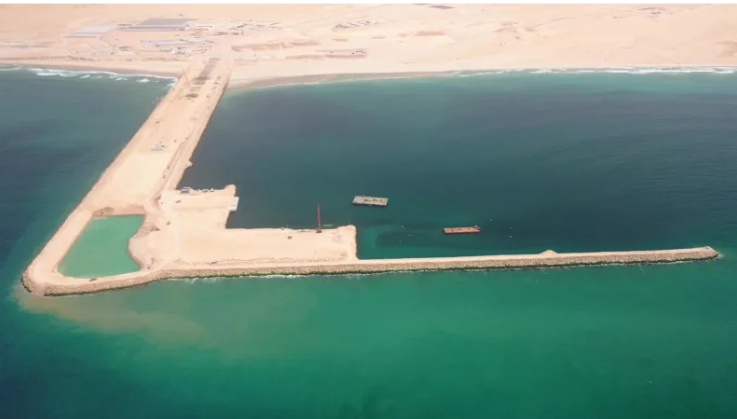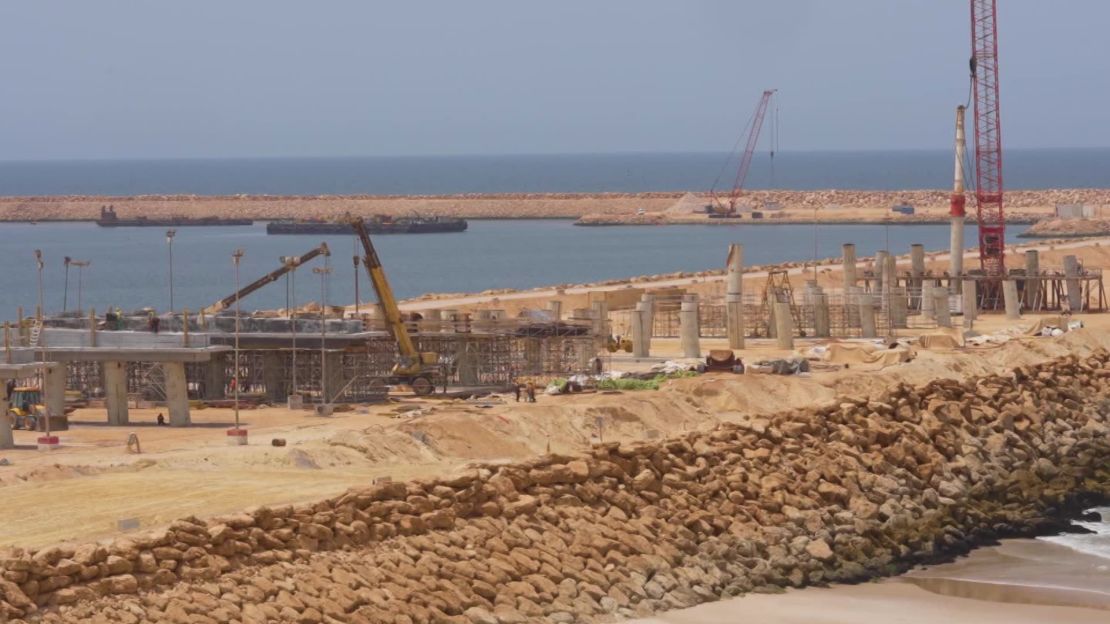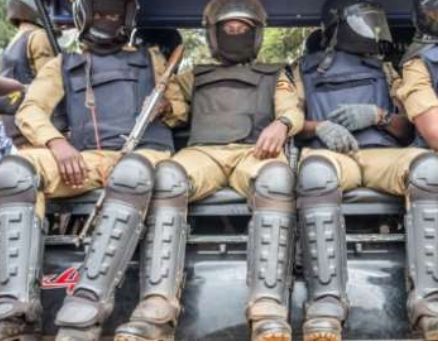Dakhla constructing an ecosystem’: How a small, windy city could become a gateway for trade

A small city in the disputed territory of Western Sahara, which is mostly controlled by Morocco, is located on a long spit of sand between the Atlantic Ocean and a saltwater lagoon. Its consistent wind makes it a hotspot for kitesurfing enthusiasts, but a new port, currently halfway through construction, could turn the area into a gateway for trade.
The $1.2 billion megaproject is expected to complete in 2028. Spanning 1,650 hectares, the complex will include a trade port with an oil terminal, a fishing port and a shipyard. There will be a bridge linking the port to the land and a 7-kilometer road that connects the port with a national highway that runs along the coast as far north as Tangier and as far south as the border with Mauritania.
“We’re constructing an ecosystem,” Nisrine Iouzzi, the director of construction for the Dakhla Atlantic Port, tells CNN. Once operational, she expects the port to handle 35 million tons of goods a year.

This will not only boost Morocco’s economy, she says, but it could help the country become a maritime hub for worldwide trade, connecting regions such as West Africa, the Middle East, Europe, North America, the Canary Islands and even South America.
“The geographic location is key (to) the success of the port,” she says, adding that the project has attracted significant foreign investment, including from the United Arab Emirates.
Gateway to Africa
The project is part of Morocco’s national port strategy, which aims to modernize and strengthen port infrastructure by 2030, in order to enhance its role in global supply chains.
Seaports such as Casablanca, Tanger-Med and Agadir have already been or are being upgraded, but because of its location, the Dakhla port is seen as particularly significant in opening up other parts of the African continent for the world to trade with.
“We strongly believe that with this infrastructure – port infrastructure, road infrastructure, renewable energy – we will be very attractive for investors that aim to get to one of the fastest growing markets, which is the West African market,” says Mounir Houari, general manager of Dakhla’s Regional Investment Center.
With the implementation of Africa’s continental free trade agreement, which aims to create a single market for goods and services, the port could encourage the processing of raw materials within the continent.
“Less than 5% of African natural resources are processed in Africa because there is no industrial infrastructure and exporting infrastructure,” says Houari. The Dakhla port “will encourage many Africans to start processing natural resources in Africa, allowing African countries to create more jobs to improve their skills and know-how and strengthen their own industries.”
The Sahel region, especially landlocked countries such as Mali, Chad, Niger and Burkina Faso, are expected to benefit. Houari explains that Morocco has granted the region access to its road and port infrastructure, providing “a door to the Atlantic maritime trade.”
Turloch Mooney, head of port intelligence and analytics at research firm S&P Global Market Intelligence, says the development could be beneficial to the region. “It is very positive to see modern port and trade infrastructure being developed in the Western Sahara where there is potential to support a large hinterland in West Africa and the Sahel,” he says. “Quality port infrastructure and efficient port operations is part of the package of assurance for foreign direct investment and has been a key factor in the successful growth strategies of many developing countries.”
But Western Sahara and the Sahel region has a long history of unrest. “Local disputes can make developing port infrastructure and reliable logistics much more challenging,” says Mooney.
He cautions that infrastructure alone won’t drive trade growth in the region, and that the port’s success will depend on good governance, reliable transport connections and political stability.
Source: CNN






